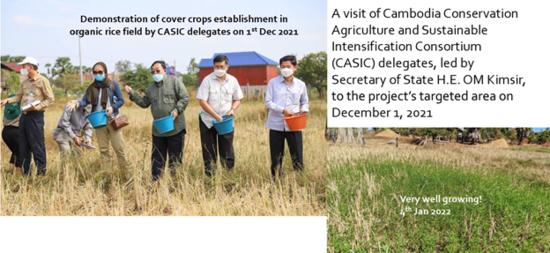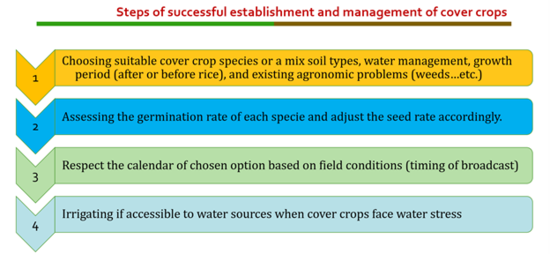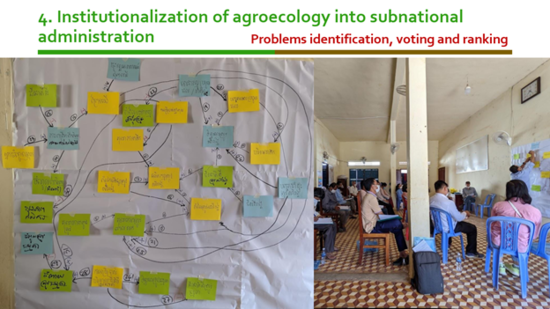Improving productivity and yield by integrating agroecology practices with conventional organic farming in Preah Vihear, Cambodia
In April 2021, the province was selected to be one of the three flagship sites (together with Son La – Dien Bien in Vietnam and Xiangkhouang in Laos) of the ASSET Project – Agroecology and Safe Food System Transition – in SouthEast Asia. Since then, the ASSET Project has been actively promoting agroecology practices in Preah Vihear, in close collaboration with WAT4CAM and the Metkasekar project. Gradually, agroecology principles have been integrated into conventional organic farming in the province, particularly in Rik Reay commune, Rovieng district.
A collective study conducted by the ASSET Project, WAT4CAM Program and Metkasekor Model found that the conventional organic rice farming in Rik Reay commune is managed by a soil mining process, and farmers do not use organic fertilizer. That has caused a dramatic reduction of soil organic carbon in both upper and lower cropping areas. To restore soil organic carbon, integration of agroecological practices was recommended, with 2 options of cover crop uses:
- Use of long cycle cover crops; or
- Breaking soil physical constraints and use of short cycle cover crops.
The study compared different choices of cover crop species and found that the mix of Stylo & C.ochroleuca is the most efficient and easily adaptable. During one year of practice, soil properties have been seen to improve, while the aboveground biomass, rice yield and land productivity are also increasing.
The establishment and management of cover crops have been advised step by step, as illustrated below:
Researchers are now focused on scaling up agroecology practices not only for organic rice but also for other crops. The scale-up will be implemented in the lowland, as well as the upland in Rik Reay commune.
An assessment has been done with support from the ASSET Project, to develop the agriculture land use plan and support agroecological transition in O’Kambor and Sakarach areas in Rik Reay commune. Two consultation workshops have been organized in those areas; the first one mapped out, voted and ranked all the problems, while the second one focussed on discussing and proposing a list of concrete activities.
Final outcomes include further consultation with commune authorities to finalize and get official endorsement at provincial level and to propose agroecology related activities in their development & investment plans of commune and districts.
(*) Information, Photos & Illustration provided by Rada Kong - Facilitator of SC2.1 and SC 2.2 of the ASSET Project



